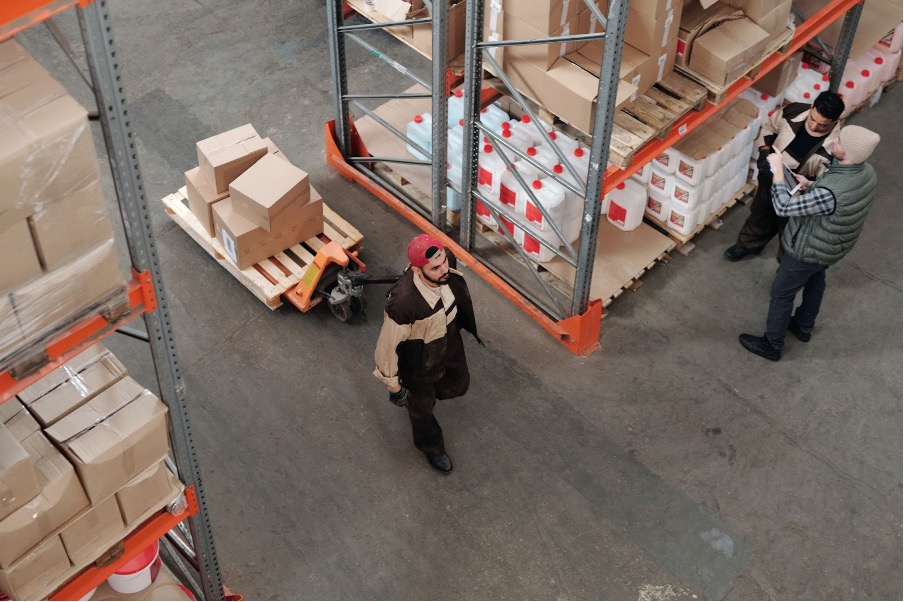Importing and wholesaling are popular business avenues with great potential for success. However, no matter the product, scale or market, many risks are involved. In fact, even the most well-designed product that has been through quality assurance and distributed through well-known agents, wholesalers or retailers can still be subjected to extensive liability
claims.
As an importer or wholesaler, you’re likely not directly involved with the
manufacturing process, so it is easy to assume your exposure to product liability claims for financial loss, injury or damage is slim. But in many circumstances, this is not the case. The Australian Consumer Law usually places full responsibility and legal liability on the importer or wholesaler. The manufacturer is usually next in line, so you may be more exposed than you think.
As a leading insurance broking firm, we constantly work across a broad range of
industries and across a wide range of
insurance types and assist clients with unique exposures. While the knowledge and experience of our advisers are extensive, Product Liability Insurance is a particular area we are often requested by clients to provide advice and assistance, understandably so, as Product Liability Law and the Australian Consumer Law can be complicated.
Product liability claims have been gradually increasing over the years, with compensation payments also rising. Specifically, public and product liability claim payouts increased by 13% in 2019 compared to the previous year. Meaning the financial fallout for businesses can be costly and is increasing each year.
While these statistics may be concerning, we have provided the below brief guide to help you understand the world of product liability, including:
- What is Product Liability Law and Insurance?
- Who needs protection?
- What are the key risk exposures?
The last thing your
business wants or needs is an unexpected call notifying a product liability claim due to a person being injured, damaged
property or some type of financial loss being caused by something your company imported or wholesaled. So how can you mitigate the financial and reputation risks, prepare for financial consequences and also optimise your insurance coverage?
What is Product Liability?
Product Liability essentially provides financial protection for the potential of
legal costs and court awarded damages relating to your legal liability for personal injury or property damage caused by a product.
Management Liability insurance is designed to provide protection to both the business and its directors or officers for claims of wrongful acts in the management of the business.
A business insurance pack can provide cover for your business premises and contents, against loss, damage, theft or financial loss from an insured interruption to the business.
Purchase up to six products under one Business Insurance Package.
Product Liability essentially provides financial protection for the potential of
legal costs and court awarded damages relating to your legal liability for personal injury or property damage caused by a product.
A product in this sense is anything that falls under one of the following categories:
- Goods manufactured, sold, constructed, installed, grown, altered, repaired, labelled, distributed, imported or exported; or
- Packaging, labelling, advice, warnings given or omitted to be provided with any of these products.
First and foremost, Product Liability Insurance understands that accidents happen, so it will still pay your legal costs and court awarded damages, even if the product was faulty or caused damage in some way. Insurers provide cover for your liability under state and federal government laws, providing you with financial security and peace of mind.
Secondly, it is specifically designed for businesses involved in the importing, distribution, production and supply of products to consumers or businesses. This means that while any business in any sector along the production and distribution chain can be liable, Product Liability Insurance can provide tailored cover for that business.
Ultimately, if someone suffers an injury or their property is damaged due to a fault in a product your company imported, repackaged, distributed or sold, they may take legal action against you or your business to recover their loss. Product Liability Insurance provides financial security from potentially large legal bills and damages.
Product Liability Law
It is important to note that Product Liability laws (being both common and statute) consider the distribution of blame between the companies involved in the lifecycle of a product. This means that the responsibility for the liability is apportioned between the parties involved. This can be both challenging and beneficial.
The main law is the Australian Consumer Law, one of the most consumer-friendly laws in the world. Under this law, the consumer has the right to complain or take action against either the retailer, importer or manufacturer. It’s then up to the business to try and find out who is responsible for the fault. If you have Product Liability Insurance, the insurer will manage the claim on your behalf and try to collect from the company that was responsible for the fault, which may be overseas and have insurance.
Product liability law also considers:
- User error. For example, if you manufacture a car that is later involved in an accident, the automatic assumption is not that the car was faulty, not that the user didn’t follow the instructions;
- Negligence on behalf of the user/consumer. The possibility of contributory negligence by the driver is investigated and taken into account; and
- Voluntary assumption of risk when purchasing the product, such as falling off a ladder from a height is a real possibility, with nothing wrong with the ladder.
Who Needs Product Liability Insurance?
Product Liability Insurance is suitable for any business in the chain from
manufacturer and importer to wholesaler and
retailer. Meaning, if you import, sell or supply goods or products to other businesses or customers, your business has a product liability risk. It is crucial to look for ways to protect your business against the financial cost of dealing with the claims and litigation that could arise.
As mentioned, one of the more challenging aspects of product liability is the appointment of liability. While your business may not be at the centre of the product liability case, if your company is named, it will mean substantial legal costs and potentially a share of any damages. Product Liability Insurance will provide financial security and peace of mind to help you focus on growing your business.
Many liability legal disputes involve a number of companies and people. For example, manufacturer, vendor and the buyer. If an incident involving a product was to occur, any or even all of these three parties could be partially or totally responsible. So, responsibility would be considered along the lines of:
- The manufacturer is responsible for producing products that aren’t defective or dangerous with a safety warning if needed.
- Vendors have a responsibility not to sell products that are defective or dangerous.
- Buyers have a responsibility to use the product as it was intended and be responsible for clearly known risks, such as sharp knives that could cause injury.
While anyone in the supply chain can be liable to an extent for product liability incidents, importers and wholesalers often fall under the radar.
Product Liability Insurance for Importers and Wholesalers
Importers bring in goods or products from overseas. However, did you know the Australian Consumer Law makes importers legally responsible as the manufacturer of the goods or products they import? Wholesalers also buy goods from manufacturers at a discounted price to sell to retailers, and sometimes, direct retail customers.
Although their roles are different, importers and wholesalers can both be held liable under the Australian Consumer Law for the products they sell if they are faulty or dangerous. It’s essential that public liability is in place for this risk.
Liability Exposures
As importers and wholesalers, what comes with the territory is dealing with many external stakeholders and intermediaries. While this is not innately a bad thing, it does increase the liability risks both types of operations are exposed to.
Essentially, product liability occurs when the defective design, manufacturing, usage instructions or warnings on a product are wrong and a person is injured, property damaged or causes financial loss. While this may be an issues for the manufacturer, the importer or wholesaler can be drawn into any claim and held responsible partly or wholly for legal costs and damages.
Examples of importer and wholesaler activities that can increase liability exposure include:
- Direct importing: Buying products directly from foreign manufacturers means they aren’t always produced according to the same safety standards in Australia. If a product does cause injury or damage, the importer could be held liable, even if the foreign manufacturer was the cause. The importer is then left to try and get the money from the overseas company, which may or may not have insurance.
- Additional services: Providing post-sale services such as installation or assembly can increase your liability, as doing so without staff having the correct training or qualifications could be risky.
- Private labelling: Private labelling is likely to make your importing or wholesaling operation as the manufacturer, and therefore, responsible for the product liability.
- Storing and handling products: Inadequate storage and handling facilities or procedures may result in the products being damaged or altered so they are no longer suitable when used by the final customer.
Risk Management
Many of these liability exposures may be key elements of your business. Managing the risks related to them does not mean you have to remove them from your business altogether. Instead, having a risk management plan in place will help to manage the uncertainty in the business and ensure that it can continue and get back to where it was before the loss. So, identifying the key risks and evaluating how they will impact the business if they occur will help you put control measures in place. This could include:
- Ensuring adequate insurance coverage (risk transfer)
- Avoiding intrinsically risky products (risk avoidance)
- Use detailed warning labels according to the manufacturer (risk reduction and prevention)
- Have a quality control plan (risk reduction and prevention)
- Have a product recall plan (risk retention and risk transfer)
- Keep ongoing records of all business activities and sales (risk reduction)
In Summary
No matter where they fall in the production cycle, all products create some risk and a degree of liability exposure.
Having a risk management plan in place will help you to manage the uncertainty of your business and its products. It will also assist you to ensure continuity of operations and minimise the financial impact. However, if one of your products causes serious injury or property damage, your business is likely to face an investigation and legal action, and will likely be heavily scrutinised and economically penalised. Product Liability Insurance is an invaluable risk management tool, with insurers assisting to legally defend your business and reputation, it’s one of the easiest ways to protect your business against product liability exposures.
If you are interested in getting the right insurance coverage for your business, contact our team of professionals today. The team of authorised representatives at
Insurance Advisernet are dedicated to providing tailored solutions and finding the insurance coverage that suits you.








